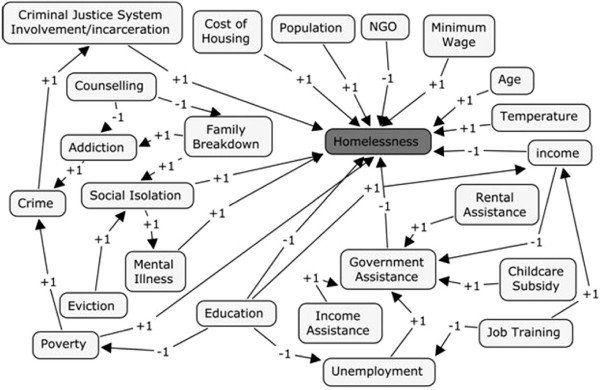The Trouble with Jesus
by Constance Hastings
The Trouble with Jesus is his radical reversal of ambition and status
by which the love of God is known.

Politicians Know This Much:
Jesus, oh Son of Man, you gotta lay off this. If you want to get your message out there and have everybody behind you, you have to play to what they want. All this talk about dying and staying in last place is going to destroy you. But no, you just keep repeating it over and over again. Take some good advice even those sorry followers of yours seem to realize. The only thing that needs to raise from the dead is your rhetoric.
Debate Issues
The scene is blatantly ironic. Here the Twelve were arguing over who would be the honoree at the next celestial awards ceremony. Ironically, these guys were some of the biggest losers out there. Most had only worked menial jobs, a few had pasts of questionable repute, one or two were out of military backgrounds but didn’t make it very far. Evidently they thought just by hanging on to Jesus’ coattails they’d be catapulted into fame and fortune.
Jesus interrogated them, calling them up front and center to set them straight. Notice though, he was the one seated, a significant detail in what he was to say to them.
“Anyone who wants to be first must take last place and be the servant of everyone else.”
Make America Great Again
Please, no matter what side of the blue/red line in which you sit, step back a pace or two and think about this. The Twelve who were supposed to be part of Jesus’ inner circle had been quibbling about who among them was the greatest. Jesus didn’t solve their fussing by handing out blue ribbons. Characteristically, he challenged the very concept they upheld.
To be fair, greatness is typically understood and assigned to the one at the top of the heap. We live this all our lives. King of the schoolyard, elections to the prettiest or most likely to succeed, top dog in the pack, valedictorian, moving up the ladder, Champion, CEO, President, GOAT of you-name-it. Having celebrity endorsements from people like Taylor Swift apparently is a bit of a boost in getting people to register to vote. Even the MAGA political slogan (or this from the other side, When We fight, We Win) is premised on the national effort to be the best in everything in the world. Sorry, but Jesus isn’t moved by any of it.
From the first century to the twenty-first, history has shown all cultures want to show a good image. It’s been the same throughout. To get to the top, you travel with the best people. The company you keep shows how powerful, rich, important you are in this world. If you’re seen with lesser-thans, it’ll only pull you down.
What’s more, if you intentionally dismiss those who don’t have what you do, money, class, status, racial privilege, it helps establish your own place, maybe even elevates you if you do it right. It’s how the world works.
Know though, the first century had no middle class. So from the disciples’ perspective, if you weren’t at the top of the human heap, you lived in the cesspools of the world. You can’t blame them for hoping life with Jesus would get better.
When Jesus talked like this, he was up against the sensible logic of getting ahead. That’s meant for his day and for ours. It’s also likely why he felt he had to repeat this message in many ways. In short though, it’s not appealing to very many.
Yet…there’s an unspoken issue here. It’s been said that those who get all the accolades today eventually become yesterday’s heroes. No matter how far you get, in the end you’ll not get all that far, eventually forgotten in the dusty annuals of history. That goes for individuals as well as nations.
So while there’s this battle for supremacy being waged, it is accompanied by a gnawing anxiety summed up in the question, Is This All There Is?
Greatness Redefined
Jesus’ statement that any who would be first (however you measure it) must take last place and serve others instead topples cultural notions of achievement based in wealth, status, influence, even the right to one’s own self. It replaces social power with relational power, reversing the familiar top/bottom pecking order of who is most important.
By his definition, greatness is found and measured by how much one serves, loves and cares for another. Moreover, those who are the most ignored, forgotten, vulnerable are the ones to whom this service should be directed, not to the already high and mighty. By this menial work, one honors those whom Jesus loved best.
While such an ideal sounds aspirational, even philanthropic, note where Jesus was taking his disciples even as he delivered this radical lesson. They were traveling on a road that would take them to Jerusalem. Jesus had been trying to lead his men to the ultimate end, at least what would appear like it. In Jerusalem, Jesus would take up, carry, and die upon his cross.
Rejection
Jesus advocated a new world order, a new reality where the most honored are servants. He got killed over it. None in the religious or political establishments would stand for such.
Likewise, the disciples had no comments when he called them out for their ambitions. Some would say they were afraid to say or ask anything. If they risked revealing their honest thoughts, they might get the answer they didn’t want to hear. They are not alone in their thoughts. Even if not formulated in words, the unspoken question is this. If the Son of God is killed over this, what might happen to the rest of us?
Last Place is Welcome
Note again, Jesus gave this lesson to his disciples from a seated position. He did not stand with them or above them. He very well could have been positioned beneath them among those gathered in the house in which he delivered this lesson. Such was his first example.
But he extended it further. Poignantly, Jesus reached for and held in his arms a child. Now for those who like Sunday-sweet vignettes, this may rock your world. While the Greek word for child can mean “little one”, it can also mean “slave”. What the disciples saw in Jesus’ embrace was one who in this culture had no legal rights or protections, had no value but was a drain on resources due to being totally dependent for survival on others. Such existence is precarious at best.
Want to know what greatness is? To be great is to focus on someone other than self and especially the most vulnerable, like that of a child.
But go deeper. When the servant embraces the powerless, the outcome becomes one of encirclement, being close to the very person of Jesus and that of God. Holding the childlike is holding Jesus who in turn is held by God.
Think Back. Remember this other child? One who also was poor, vulnerable, homeless, not welcomed in his birthplace. He grew to serve, teach, heal, reverse and save us from ourselves. But first he came as a child.
For those who would know him, who live as his servant, there is validation by the life of Jesus. Through him God is saying, I love you. You are my child. What could be greater than that?
The Trouble with Jesus: Considerations Before You Walk Away by Constance Hastings Support Your Local Independent Bookstores and Click Here!
Subscribe to The Trouble with Jesus Blog Here.












